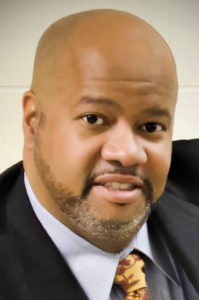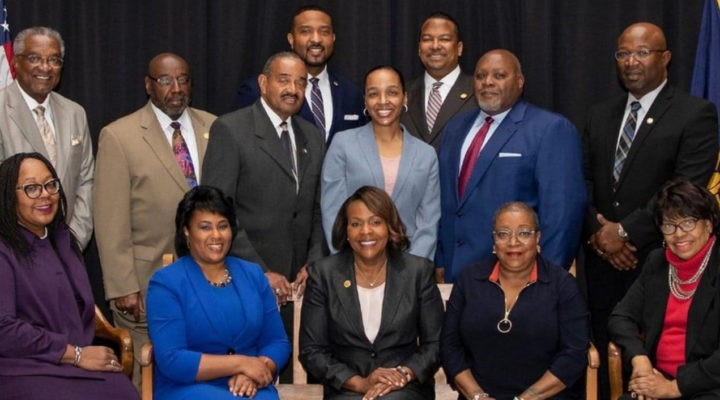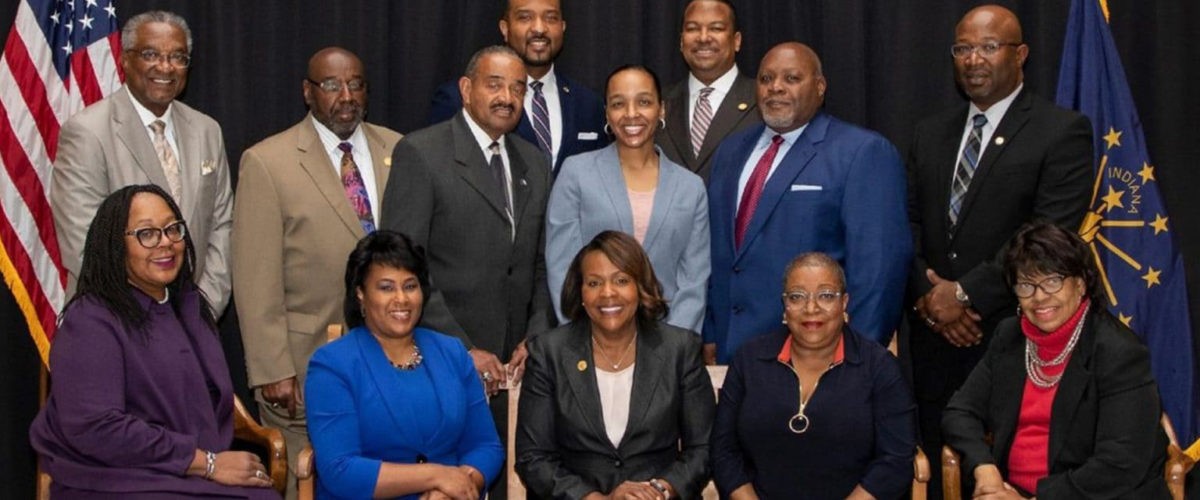Tension is at an all-time high in the Indiana General Assembly and the entire United States. The Ministerium, an Indiana statewide ministers’ organization, and other faith leaders across the United States are concerned.
Attempted physical abuse and public bullying tactics on the floor of the Indiana House of Representatives have ignited rage. Protest seems imminent because a young white legislator sought to intimidate and assault his colleague, an older Black woman legislator who recently returned to work in the legislature. While still recovering from COVID-19.

Ivan Douglas Hicks
After Rep. Sean Eberhart apparently attempted to hurt Rep. Vanessa Summers, Rep. Bob Morris pulled him away and literally carried him off the floor of the House.
In the wake of this, another respected legislator was accosted in the restroom by a man twice his size and half his age. Rep. Vernon Smith, a 76-year-old African American legislator, slight of build, was bullied by a much younger, hostile, noticeably irritated Rep. Alan Morrison.
Smith — who served 20 years as a city councilman in Gary, Ind., and has served in the Indiana House of Representatives 30 years — avoided being cornered and escaped the attack. Rep. Morrison, though, reportedly followed Rep. Smith back to the House of Representative chambers, shouting until another legislator pulled Morrison away.
Morrison reportedly indicated that he was able to “deal” with Rep. Smith better off the floor of the House than on it. Apparently meaning in the restroom.
This began when another Black legislator, Rep. Greg Porter, was booed on the floor of the House for pointing out racial disparities in a bill he believes will create elite or resegregated public school districts in South Bend.
As other legislation is now passing between chambers that shows some intentional consideration for fairness, equity and the racial climate of the day, we hope police reform bills like HB 1006 remain clean or pork-free. Meanwhile, dangerous bills are being considered now that are hurtful, anti-community legislation worth fighting against.
“This began when another Black legislator, Rep. Greg Porter, was booed on the floor of the House for pointing out racial disparities in a bill.”
Ironically, the Assembly was honoring tradition, heritage, struggle and progress as they observed their longstanding annual Black History Month tradition that day, wearing African attire. This community-wide celebration was overtaken by confrontation.
Our concern is that this type of behavior should not be allowed to become normalized. Microaggression has become a macro-problem as state and national advocacy groups call for an investigation.
The only way representatives can voice the position of their constituency is to ask questions and make observations, for the record. The “booing” of fellow members who represent poor districts, primarily consisting of Black and brown people, needs to be addressed. Legislation that is considered harmful to the hardest hit, meanwhile, criminalizes poverty, creates implicit bureaucratic hazing and gives an unfair advantage to people who oppose helping citizens who are hurting. This should tear at the soul of those whose hearts are not ideologically atrophied. Society is judged on the way it treats those in need, we believe.
This “New Jim Crow” legislation emerging in Indiana and around the nation is socially regressive. It appears as if some feel recent loss has been suffered — and that fighting for inequitable laws is their elected obligation and hope. This polarization can and should be soberly addressed.
The community and leadership of both chambers seem to agree that training for the increase of cultural intelligence, perhaps in small, intentional socially separated groups, could be the next step. While appropriate discipline should not be bypassed, both sexual harassment and ethics training already is required, so there is a precedent for mandatory training. As corporations, foundations and culturally responsible organizations are seeking to be better, the Indiana General Assembly should attend this training and require attendance from underlings and vendors, to begin to affect institutional structural change.
“This is old behavior that has been brewing unchecked for some time.”
The Ministerium calls for House Speaker Todd Huston and Senate President Rodric Bray to immediately create a dual-chamber, bipartisan, community-engaged solution for the rancid racism and socially ignorant deafness that led to this entirely embarrassing episode. This is old behavior that has been brewing unchecked for some time. We need real leadership now to ensure a peaceful tomorrow. We may even surprise the world with the leadership we provide in March 2021.
In partnership with many corporate, advocacy and faith organizations around the city and state, the Ministeriumis resolved in our position that this pattern of intimidation and threats should be fully investigated, and clear action steps must be taken to resolve this matter and unleash the creative imagination for a better, more civil state of affairs.
The Ministerium intends to incite “appropriate dialogue” as we understand that nasty words and hateful laws are not new. Yet, while the lack of civility demonstrated through acts of intimidation, bullying and physical imposition exhibit ethical breaches, for us they conjure historic remembrance of abuse of our elders and disrespect of our women, for which we still cannot stand and will not be muted nor scared from strategic resolve.
Our leaders are advocating for the very lives of their people. We are battling a pandemic, and those hardest hit are suffering from the way district lines have been drawn. Political advantage on one side is juxtaposed to pragmatic debilitating disadvantage on the other. Now lines are being drawn in adjacent restrooms and cowardice is shown on the floor of the House, not because terrible words were exchanged among colleagues, but because racism and intimidation are openly used tactics to advance political positions.
Ivan Douglas Hicks serves as pastor of First Baptist Church North in Indianapolis. He earned the doctor of philosophy degree from Temple University in Philadelphia, master of divinity degree from United Theological Seminary and a bachelor’s degree from Morehouse College. He also serves as general secretary of the Indiana Ministerium, an organization of men and women pastors and faith leaders seeking to provide for “widows and children; the most vulnerable among us” and “fighting for those who cannot easily fight for themselves.”


